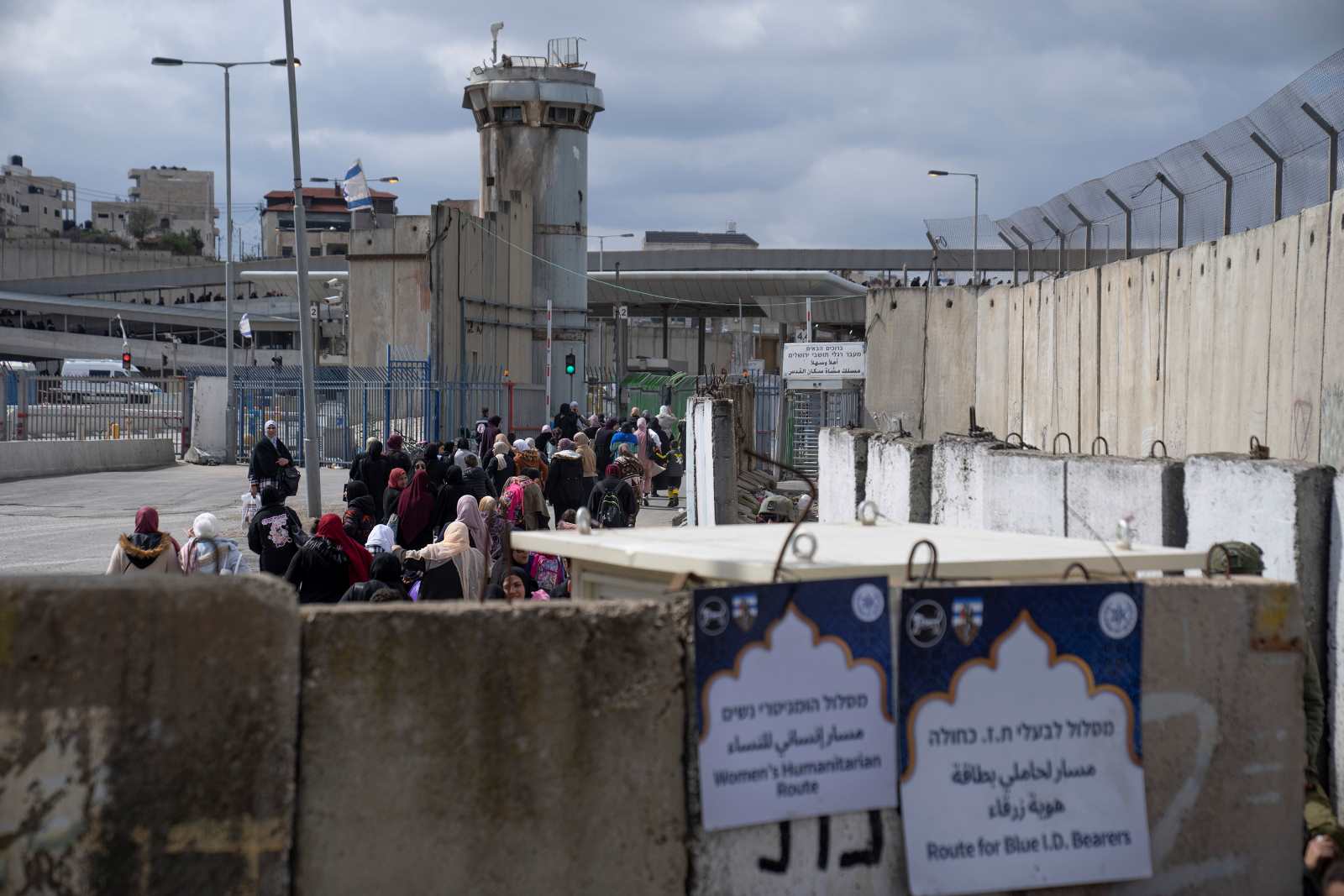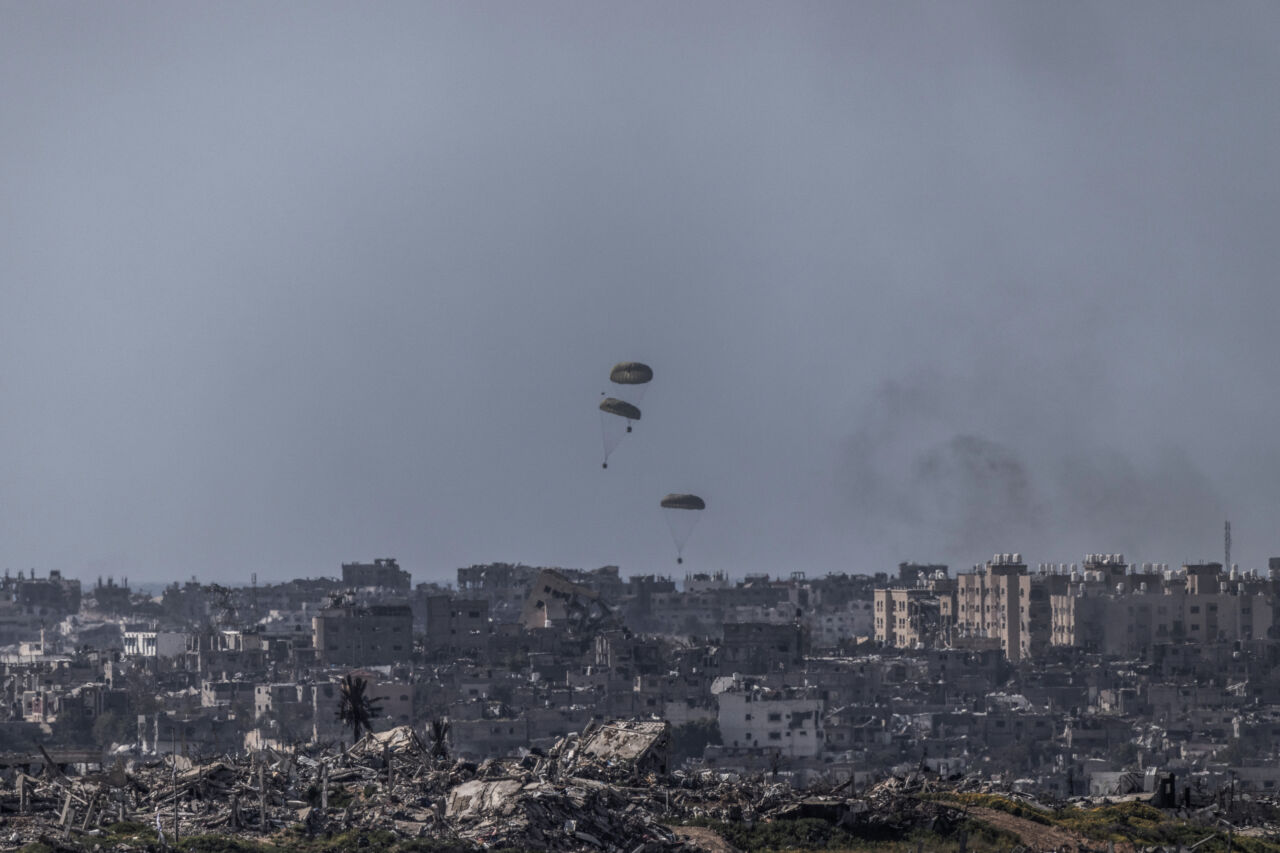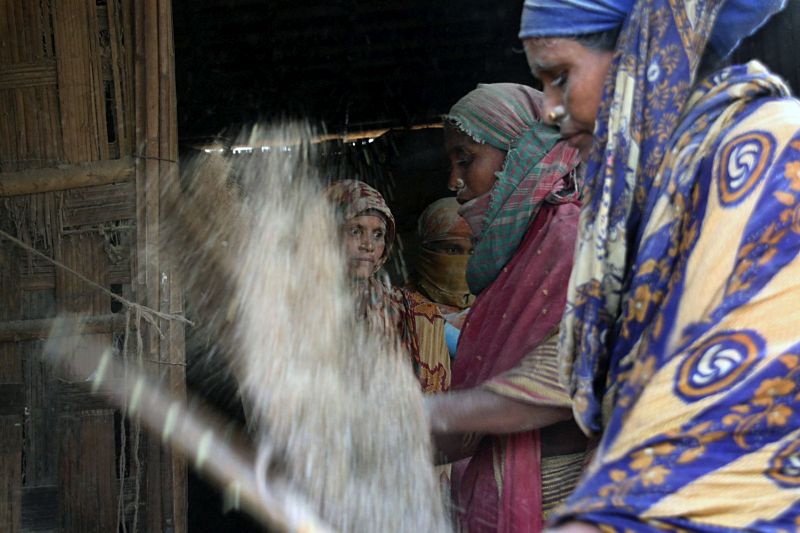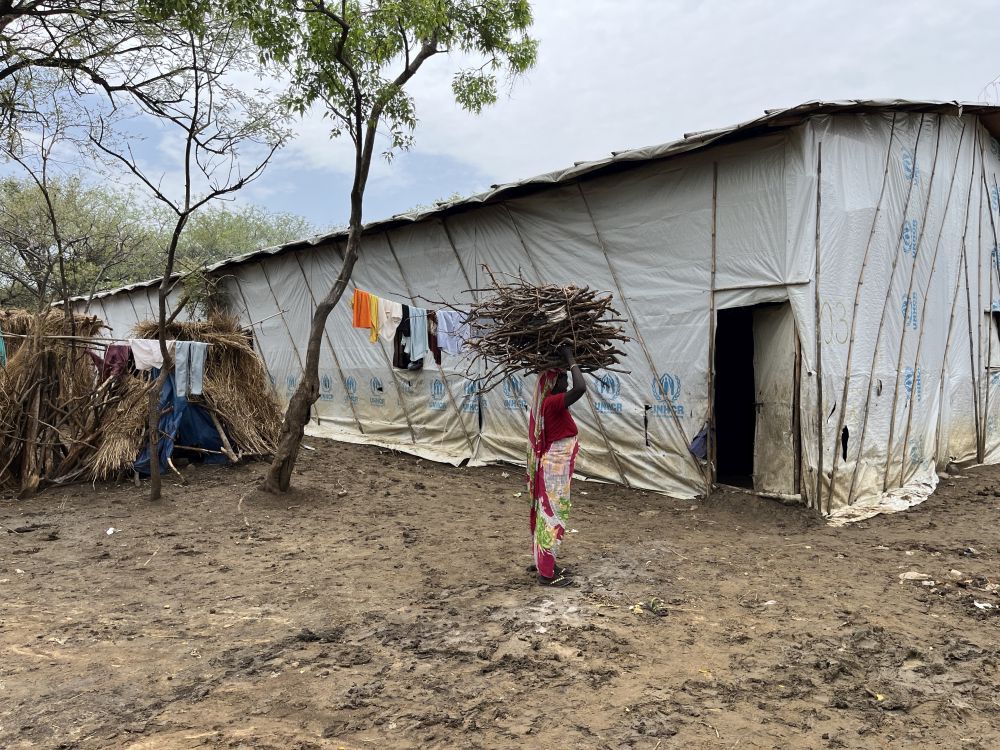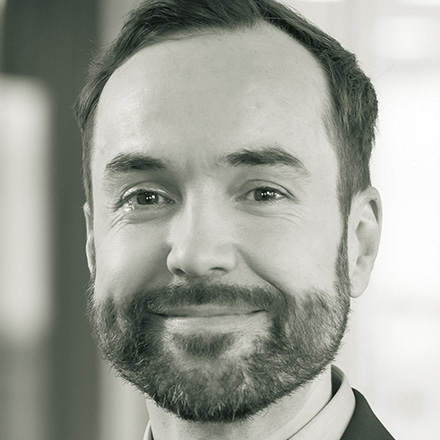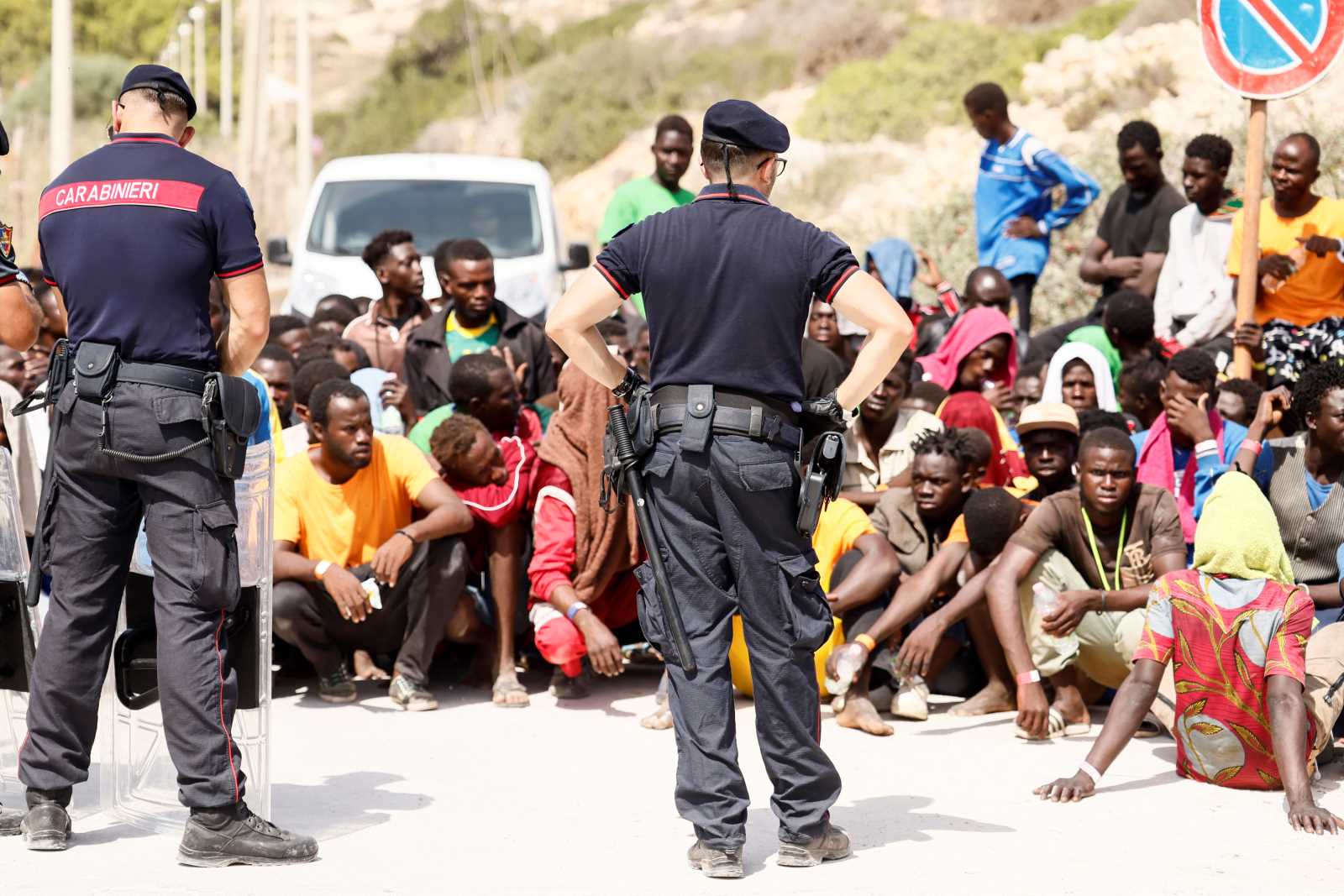Lapsed immunisation
“There is a lot of genocidal rhetoric”
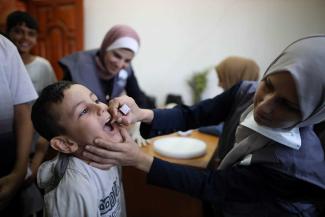
In a scenario of devastating war destruction, is it possible to contain a disease like polio at all?
In some way yes, in other ways no. How the war is being waged matters. In Gaza, people are concentrated in small areas. Most of the attacks are done by air strike. There is not much interaction between combat soldiers on the ground and the civilian population. People can’t leave Gaza, so the polio outbreak there will most likely be contained there geographically. In Ukraine, where there are more troops on the ground, in contact with the civilian population and enemy fighting force, and the war affects a huge territory and a much larger and more dispersed population, that might not be so. Inside Gaza, however, the polio outbreak is very serious. Since the war began, some 60,000 babies have been born, and due to the collapse of healthcare, most of them did not get the vaccinations they need. Polio is at its most dangerous for children up to the age of five or so, hence why inoculation is done during this time period. There are 300,000 to 400,000 children under the age of five in Gaza. Before the war, the disease had been eradicated there for 25 years, and it is a terrible sign that it has now re-emerged.
How could it re-emerge if it was eradicated?
To fully eradicate the disease, every child must be vaccinated twice. If they are vaccinated only once, they are safe and will not be maimed by the disease. However, they can still pass it on if they have been infected, even after many years. Fully eradicating polio is therefore a long-term challenge. When parents know their kids are safe, they don’t worry too much about the second dose. Where daily life is difficult, as it has been in Gaza for a very long time, parents are even more likely to focus on other, more urgent things. It also matters that polio is most likely to spread where people live in unsanitary conditions – and as airstrikes have largely destroyed most of the infrastructure, the situation in Gaza is now extremely bad.
Does the the brief truce suffice to run the needed immunisation campaign?
No, it does not. The first phase went on for three days in central Gaza, and a second has started in southern Gaza. In the first, about 30% of the 640,000 targeted children under the age of ten actually got their vaccination. That is clearly not enough, and the logistics are more difficult in the other two parts of the territory. It is indeed important to cover 100%, but it looks unlikely. Moreover, Israel did not refrain from attacking during the three-day period in central Gaza. We have numerous documented instances of airstrikes and artillery fire very near to agreed upon vaccination centers, specifically the one in Deir Al-Balah.
So Israel did not adhere to the ceasefire?
The cabinet never gave a formal approval, some ministers approved it, Prime Minister Benjamin Netanyahu formally did not. The army had announced that they supported it and would enforce it, yet as I mentioned, there were multiple attacks.
Why is the Guardian’s coverage of the immunisation campaign much more upbeat than your assessment?
Everyone wants this to succeed, and no one wants to be the “negative Nancy” at such an initiative, so they emphasise what worked and downplay what didn’t.
Israel’s government claims to be acting in self-defence, but what its troops are doing often looks like a revenge campaign, and some people speak of genocide. What is really going on?
Nothing that Israel is doing in this war is new. We have seen it all before:
- the restriction of food, medical supplies and other forms of aid,
- the destruction of vital infrastructure, including hospitals,
- the displacement of people, who are then forced to gather in smaller and smaller areas, and
- the occupation or reoccupation of land.
All of these things, however, have been incredibly ramped up, beyond what we have ever seen. Officially, the government claims that its war goals are to free the hostages and to eliminate Hamas’ military and political capabilities. A lot more is happening unofficially. The background is that a racist and supremacist mindset has been taking increasingly deep roots in Israel over the past decades. Young people tend to be more affected than the older generation, though the underlying attitude can be traced back to the Nakba, the mass displacement of Palestinians in 1948. This mindset has been driving the radical Israeli settler movement in the West Bank from the very start, and their influence has grown dramatically. Many of them are keen on building settlements in Gaza too. To a large extent, this mindset is now shaping soldiers’ action. Considering that the percentage of the Israelis who come from the “national religious” camp and are typically settlers in the combat units of the army is estimated to be at least 35%, despite being 15% to 18% of the overall population, this shouldn’t shock anyone.
Is the government doing anything to rein it in?
No, it is not. It is actually fanning the flames. Security Minister Itamar Ben-Gvir and Finance Minister Bezalel Smotrich are extremist figures who come from the national religious sector and are settlers themselves, but they are just representatives or symbols of a larger change in Israeli society, that is hard for people on the outside to understand. Smotrich and Ben-Gvir speak to the growing radical sector. They endorse the idea that Israelis are free to do whatever they want, not only to keep Palestinians under permanent occupation and subjugation, but also to gain more land. In their eyes, antisemitism is wide-spread internationally, especially within the UN, and they must respond with force. It is telling that Israeli violence is currently escalating in the West Bank. The religious Zionists’ underlying message is something like “If we don’t control them, kill them, suppress them, and even cleanse them of ‘our’ land, they will kill us.” That attitude existed before the Hamas attacks last year, but the attacks have given it a boost, specifically in mainstream media. There actually is a lot of genocidal rhetoric. If you go onto Telegram or other social media platforms on any day of the week, you’ll find new posts from Israeli soldiers who say they want to punish all Palestinians, to the point of even killing them all or cleansing them. They even brag about war crimes as some sort of national desirable achievement.
So Israel is disobeying the International Court of Justice, which in January, March and May issued or reiterated several orders to prevent genocide. Among other things, it wanted Israel to end genocidal rhetoric and improve the humanitarian situation.
Israel’s government does not accept those orders, and the humanitarian situation keeps deteriorating dramatically. According to the Israeli government’s website, some 200 to 250 trucks are delivering supplies to Gaza every day. That is only one third of what the UN recommends for aid alone. However, many of the trucks do not serve humanitarian purposes. Only 8 to 10% of trucks entering Gaza right now are explicitly aid trucks. The others are called “commercial” trucks. They usually have some aid-like materials on them, but they’re for profit, along with other goods which are highly profitable such as tobacco. The goods they bring in are then sold on black markets at very high prices, and enrich people who collaborate with Israel.
What does that mean regarding other health problems, maternal health for example?
Every month, the number of caesarean sections that are done without anesthetics in unsafe conditions is in the hundreds, if not many thousands. We know that about 5000 mothers give birth every month, and complications become more, not less likely in times of desperate need. The nutritional diversity for pregnant women and breastfeeding mothers, let alone the overall calorie intake, has been documented to be way below what it should. Hepatitis A specifically, but also B, is getting worse, and so are acute respiratory diseases and dysentery. Cases of appendicitis, which could easily be treated in normal times, are now becoming deadly. We mustn’t forget chronic diseases, of course. People who suffer from hypertension or diabetes need to take their pills regularly. Before the war, those pharmaceuticals were usually available. Now they aren’t any more, and people are dying unnecessarily.
Chris Whitman heads the Jerusalem office of medico international, the Frankfurt-based non-governmental organisation.
info@medico.de


